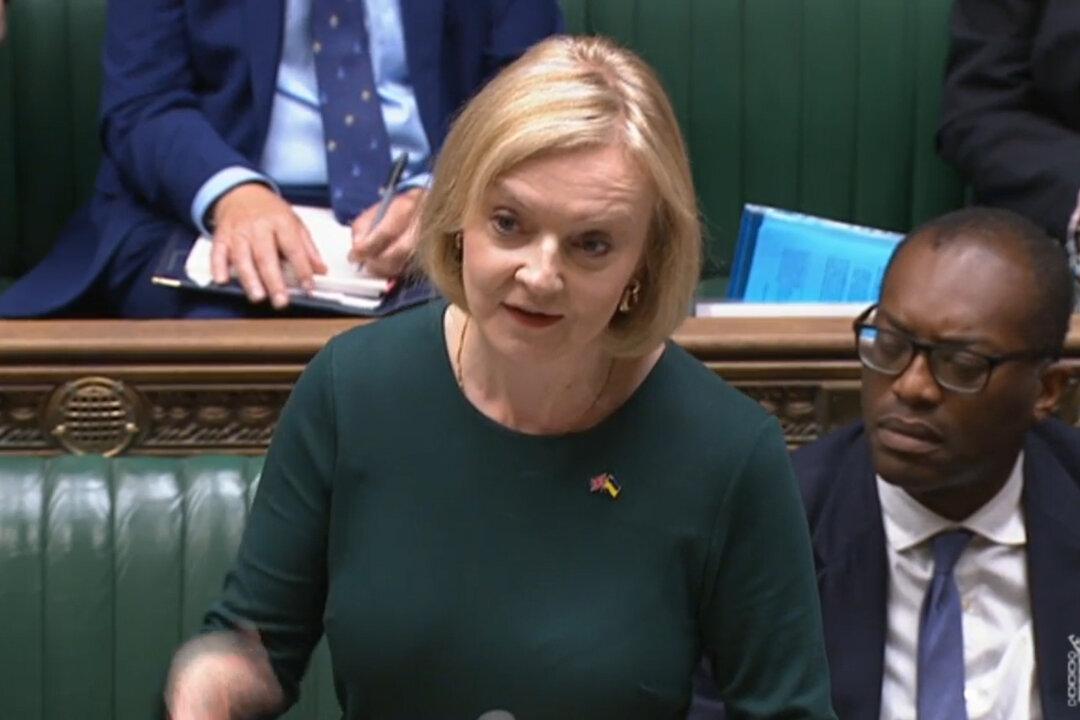UK Prime Minister Liz Truss has defended the government’s tax-cutting plan which has led to turmoil in the financial markets, calling it an “urgent action” needed to get the economy growing.
Chancellor Kwasi Kwarteng on Sept. 23 unveiled the biggest package of tax cuts in half a century, which was aimed at spurring growth in the UK economy but sparked panic among investors concerned about increased government borrowing, causing the pound to fall and borrowing costs to soar.





